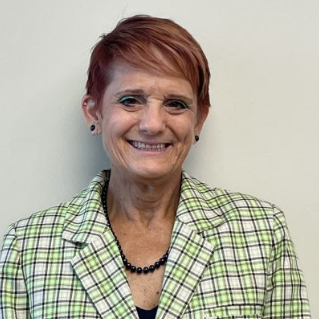FREQUENTLY ASKED QUESTIONS ABOUT MEDICATION MANAGEMENT
Here, you’ll find answers to common questions about our psychiatric medication management services and how we provide personalized care.
Understanding Psychiatric Medication Management
Welcome to our Medication Management FAQ page, where we answer your most common questions about our expert medication management services. Learn how we tailor medication plans to meet your unique needs, ensure safety, and enhance your overall mental health. Explore our comprehensive guide to get the information you need for effective and personalized care.
Who can benefit from psychiatric medications?
Psychiatric medications can benefit individuals experiencing mental health conditions such as depression, anxiety disorders, bipolar disorder, schizophrenia, PTSD, ADHD, and OCD. If you’re struggling with emotional distress or significant life challenges, these medications may help improve your overall well-being.
How do I know if psychiatric medications are right for me?
Determining if psychiatric medications are right for you involves a thorough evaluation by a qualified mental health professional. We will assess your symptoms, medical history, and treatment preferences to develop a personalized plan. It’s important to discuss any concerns or questions you have during this process.
What medical conditions can be treated with psychiatric medications?
Psychiatric medications are used to treat a variety of conditions, including:
- Major depressive disorder
- Generalized anxiety disorder
- Panic disorder
- Bipolar disorder
- Schizophrenia and other psychotic disorders
- Attention-deficit/hyperactivity disorder (ADHD)
- Obsessive-compulsive disorder (OCD)
- Post-traumatic stress disorder (PTSD)
- Insomnia and other sleep disorders
What are some of the risks of psychiatric medications?
While psychiatric medications can be effective, they may come with risks, including:
- Side effects (e.g., weight gain, fatigue, nausea)
- Withdrawal symptoms if stopped abruptly
- Potential interactions with other medications
- The possibility of developing tolerance or dependency
It’s essential to have open discussions with your healthcare provider about any concerns and to regularly monitor your response to medication.
How are psychiatric medications prescribed?
After a comprehensive assessment, we will discuss the best medication options for you. We will explain how the medications work, potential side effects, and what to expect during treatment. Regular follow-up appointments will help us monitor your progress and make any necessary adjustments.
How long does it take for psychiatric medications to work?
The time it takes for psychiatric medications to show effects can vary. Some medications may start to work very quickly, while others might take several weeks to reach their full effect. We will guide you on what to expect based on the specific medication prescribed.
Will I need to take psychiatric medications for life?
Not necessarily. The duration of medication treatment varies based on individual needs and circumstances. Some people may need long-term medication management, while others may find relief after a shorter period. Regular evaluations with us will help determine the best course for you.
Can I continue therapy while taking psychiatric medications?
Yes! Many individuals find that combining medication management with therapy provides the best outcomes for their mental health.
How do I find out if I might benefit from psychiatric medication management?
Request an appointment today with Norm or Mary!
Why ADHD Treatment Is Important
Getting formally diagnosed and treated for ADHD is crucial for several reasons.
- A proper diagnosis can clarify the challenges a person faces, helping them understand their behavior and feelings.
- Treatment options, including medication and therapy, can significantly improve focus, organization, and emotional regulation, leading to enhanced daily functioning.
- Early intervention can lead to better academic and professional outcomes, reducing feelings of frustration and low self-esteem.
- A formal diagnosis can provide access to support systems, accommodations, and resources, fostering a more positive and fulfilling life.
Ultimately, understanding and managing ADHD empowers individuals to reach their full potential.
Note: Our staff is currently obtaining their ADHD-Certified Clinical Service Provider certification.
MEET OUR TEAM

Norm Jacobowitz, APRN
HE/HIM | CARING FOR PATIENTS AGES 18-64
Specializing in Medication Management, ADHD Assessment, and Treatment Support
Norm graduated from Auburn University in Auburn, Alabama, in 1992. While working in the IT industry, he volunteered as a suicide hotline telephone worker for a year. Finding the work both rewarding and much in need, he took a massive pay cut to work in a psychiatric hospital, caring for the most vulnerable and gravely ill patients. He attended nursing school during this time, and upon graduation became a…MORE

Mary Fisher, APRN
SHE/HER | CARING FOR PATIENTS AGES 10+
Specializing in Behavioral Healthcare, Psychotherapy, ADHD Support
Mary Fisher is a Psychiatric Clinical Nurse Specialist and Family Nurse Practitioner. She has been a member of the nursing profession for 30 years. She is a graduate of Radford University with a Bachelor of Science in Nursing. She also holds a master’s in nursing from the University of Virginia. Her clinical interests include the treatment of children and adolescents as well as the medically complex. Her duaL…MORE
REVIEWS FROM REAL PATIENTS
CONTACT US
Now Accepting New Patients Ages 10+ in the Northern Virginia and DC Metro Area
12011 Route 50, Suite 410
Fairfax, VA 22033
P | 571-535-2480
E | operations@atarahealth.com
